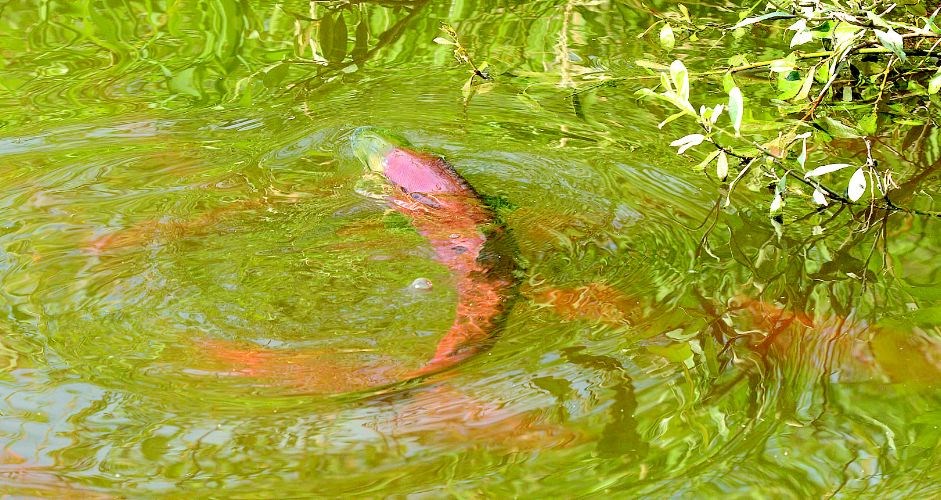The Fraser River sockeye salmon, at the centre of attention this week with the release of the Cohen Commission report, could be threatened in the event of a spill from the proposed Northern Gateway pipeline.
Tim Leadem, the Western Canada program director for Ecojustice, said a potential spill along the Stuart River could have devastating effects on local salmon populations.
"The Fraser River sockeye salmon will be impacted potentially by this pipeline, make no mistake about that," he said Thursday. "Some of the first fish that come back into the Fraser system go all the way up from the mouth of the Fraser to Stuart River and to Stuart Lake."
The Stuart River stocks are already in decline and Leadem said if there ever was a spill the situation could go from bad to worse.
"If you're going to build a pipeline that's going to transit and go across the Stuart River, then you've got to ask yourself in the event of an oil spill, what effect is that going to have on those very vulnerable conservation units that make up the early run of Fraser River sockeye," he said.
Leadem, who is in Prince George for the National Energy Board hearings into the Northern Gateway project as a representative of the environmental coalition, was heavily involved in the Cohen Commission. He represented six environmental groups at the judicial inquiry over the two-and-a-half years of testimony, which included cross-examining witnesses.
The federal government appointed B.C. Supreme Court Justice Bruce Cohen in 2009 to examine the low sockeye run on the Fraser River that year and he released his report in Vancouver on Wednesday.
Some of the 75 recommendations in the report came out of evidence presented by scientists from his coalition and Leadem was pleased to see them included in the final document. Among the highlights from his perspective are the recommendations to create a dedicated position within the Department of Fisheries and Oceans (DFO) to implement the 2005 wild salmon policy as well as the importance Cohen put on adhering to a 1986 habitat management policy.
"Essentially it means if you're going to propose a project that will impact fisheries habitat, that you have to replace it with fishery habitat of like use somewhere else," Leadem said. "DFO doesn't do that, they've fallen down on the job. Instead of no net loss over the years it's been loss after loss after loss of habitat."
Now that the report is public, Leadem hopes that the recommendations won't just gather dust. He hopes the weight of the judicial nature of the inquiry will force the government's hand.
"The proof, of course, will be what does that government do with all of these recommendations," he said. "We have an impartial judge who's looked at the evidence and who's basically come down and said, 'if you want to protect the salmon here's what you have to do.'"



